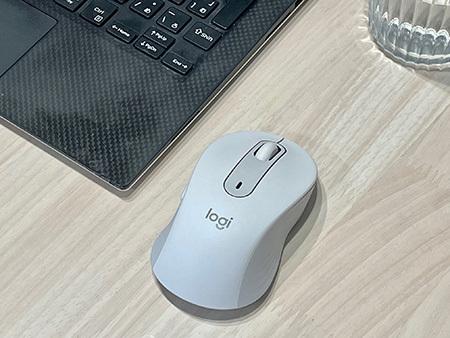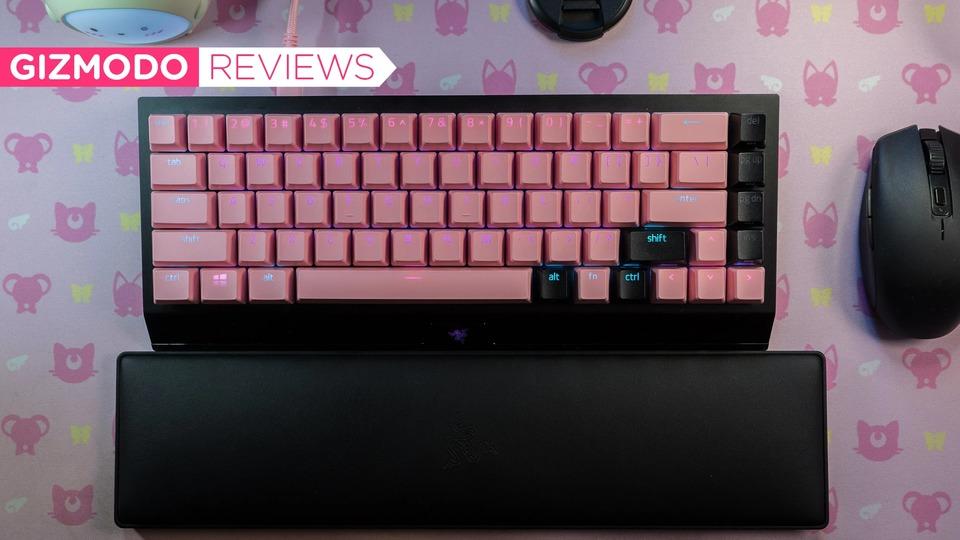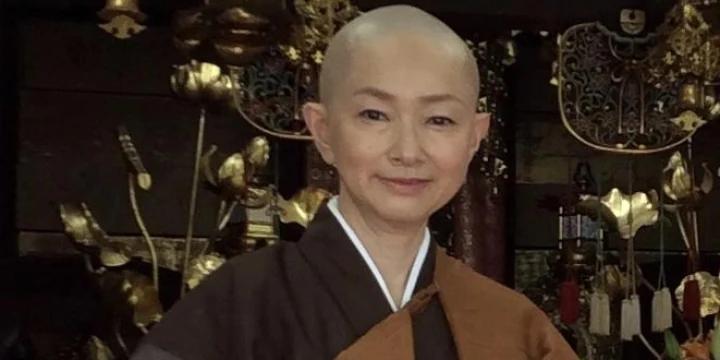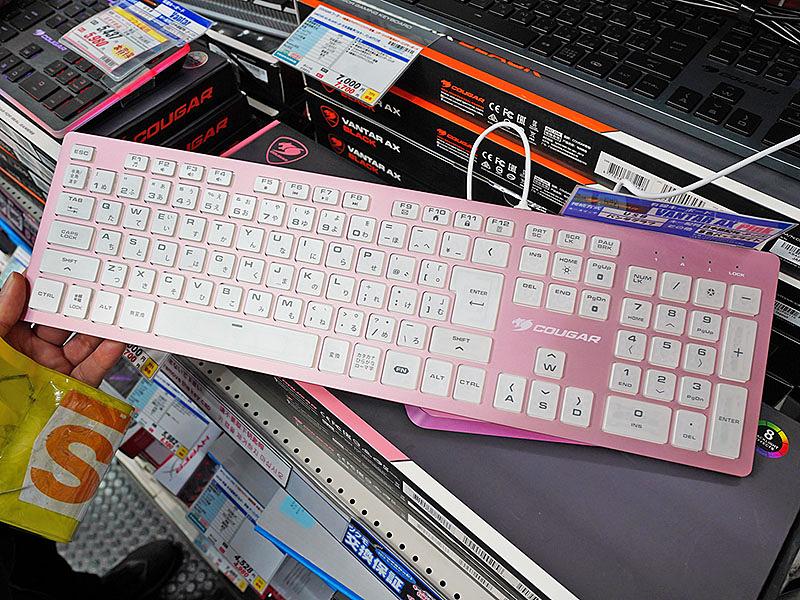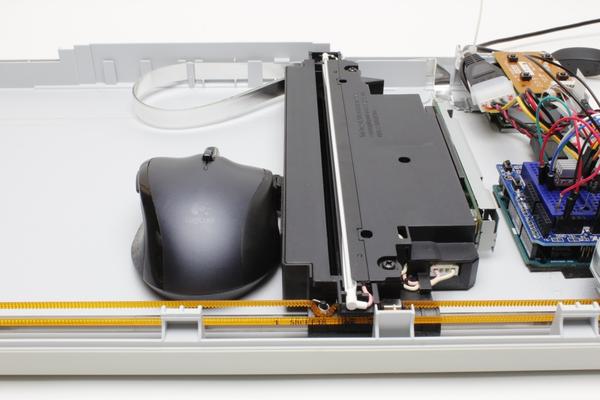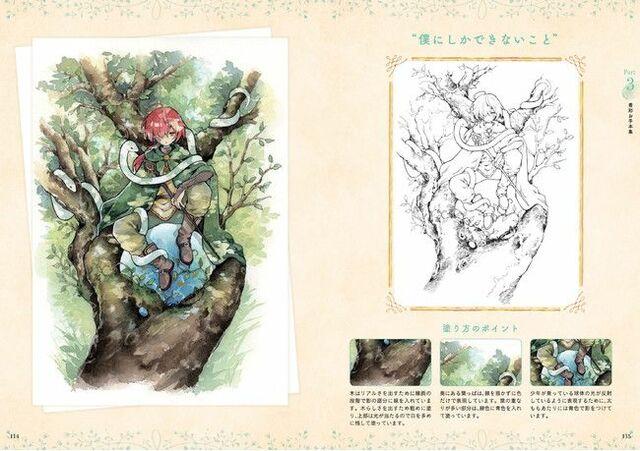「"おじさん構文"でも大丈夫」部下とのLINEが苦手な人がやるべき"シンプルな解決策"
■ In the past, I was feeling sick with my heart bare ...
About four years ago, "Uncle Syntology" has been talked about regularly.Uncle syntax is a slippery communication on SNS, which is often used by middle -aged and older people.It has characteristics such as "emoji with sweat", "emoji such as!", "~ Dena", and "XX Chan", and it has been interesting and imitated by young people.
"I was an uncle syntax," "I was depressed on TV," often reach the hearts of the parties.In -house communication has changed from internal or telephone exchange in messages in telework, and the risk of middle -aged and older people is increasing.
"Thank you !!! It's hot every day and your concentration doesn't last (sweat) Oh, because of Toshi (sweat) By the way, is it going on?Please send me (pecoli) (sweat) If you calm down, you want to go drinking with everyone in the club (beer)
Mr. A, a 20 -year -old company employee, is honestly burdensome that telework continues and his boss has sent an uncle syntax message.He sighs, "I felt" Uwa's uncle syntax. "It's hard to say that it's a disgusting because it's a contact from my boss, but I'm in trouble with honest reactions."
In the past, the former uncle syntax was often sent by a part -time job manager to bring it to a dating with a bare bare.I've heard, "It's a good idea to invite them to go drinking together."However, it seems that more and more cases have become an uncle syntax when the boss contacts his subordinates due to telework.
■ Remnants of Garaka culture that naturally had long sentences with emoji
Why was the uncle syntax born in the first place?
Middle -aged and older people are now a generation who has communicated in Garakae.Do you remember that Garakae's email was essential for emoticons?Among young women at the time, emails without emoji were called "black mail", meaning "angry" and NG.In an interview with a performing arts office, a young woman told me that she was scared, so she always used emails to use emoji.
In other words, a message that uses a lot of emoji is a remnant of the Garaka culture, and it is a text communication that middle -aged and older people have acquired when they were young.Often, there are middle -aged and older people who are pointed out that makeup has stopped from a young age, or that fashion is the same as when they were young.Similarly, it is possible that it is happening because it has not updated communication techniques from the past successful experience.
"The message from the boss is long one by one. A message like an email comes on LINE, so the smartphone screen is filled with messages," said the 20s.This is because it was natural to send it in a long sentence because it was an email in Garakae.
On the other hand, the youth generation has many short and speedy exchanges to communicate real -time in LINE and Instagram comments.The exchange in short sentences such as "Ya", "Yaba", and "Seriously" continues.In real -time communication such as chat, you often send it in a short sentence so that you do not wait.As a result, it takes less time to make "!" Is an emoticon.
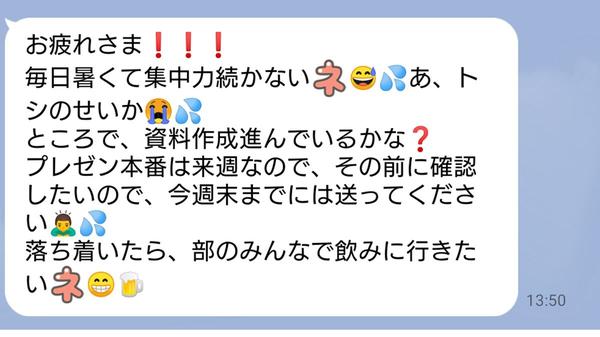
In the first place, LINEs are interacted with the same generation, especially in the youth generation.Nevertheless, the two are gaps because middle -aged and seniors try to interact with the same tools as the young generation.
■ "I want to be liked" and "I don't want to be scared" is slipping.
"My message was shocked by a close junior who was pointed out by a close junior," said a man in his 50s."He didn't notice himself. He was shocked, but he didn't know how to write."Some people are unaware, but even if they are aware of this man, they often do not know how to fix it.
Of course, middle -aged and older people do not send messages of uncle syntax to bother the other person.Middle -aged and older people are older and older, so they try to exchange them with care for the young generation.While the number of opportunities to meet his subordinates directly in telework, he has been so slimy to be liked by the youth generation and not be afraid.
At the same time, the sentences that are trying to get close to them will be felt as "I'm sorry" or "flirting".Messages that make a mistake in each other's sense of distance feel uncomfortable by SNS native youth.It's a waste to be concerned about this.
■ Business contact during telework is email from LINE
You may not be able to update communication techniques so that you can hardly update makeup and fashion when you are young.In the first place, communication of the youth generation is not the right answer, and it is not necessary to acquire their communication techniques when interacting with young people.
Furthermore, it is unlikely that middle -aged and older people just use communication techniques for the young generation.In the first place, the two are not friends relationship, not always close relationships.
However, the telework is unlikely to end, and the exchange in the relationship between the boss and the subordinates is likely to be a message.So what should I do?
Mr. A's company uses emails, as well as chat and LINE as a contact tool, but in the case of LINE, the boss tends to be uncle -style."Normally in email, but why is LINE's uncle composition intensely?"
Emails are official tools in business, and there is little possibility of problems because both middle -aged and young generations are based on some common rules and manners.In other words, it would be better to focus on emails, rather than making the tools or chatting on SNS or chat.
■ "Boss -like" care is welcomed by young people
Again, SNS communication is a close relationship for the youth generation.I understand that I want to be familiar with the young generation such as my subordinates, but I recommend that you do not try to get close to SNS, but to be familiar with other ways, such as face -to -face communication.The broken exchange should be done after getting closer.It's not a bad thing to contact LINE on LINE, but when you send it, you'll feel smart to send it in a polite sentence like an email.
A is used to telework, but it is difficult to ask a little question or consultation with his boss and colleagues.In other words, there is another place to show your concern as a boss.
For example, "Are you in trouble? It's a telework, so it may be difficult to ask questions, but please feel free to ask without worrying about it." "I was in trouble when I was a newcomer, but at that time.Was studied in this book and helped me. "
Recently, some of them have become popular as "cute" and "uke", and even young women seem to have an uncle.Although the uncle syntax itself is not bad, some people, like Mr. A, are certainly confused, which can lead to expanding the distance of the mind.
If you don't want to be captured by the youth generation, you may want to update the communication method soon and change it according to the times.
----------- Akiko Takahashi (Akiko Takahashi) A visiting professor at Seikei University IT journalist.She writes articles and lectures on books, magazines, and web media.Detailed in SNS, information literacy, ICT education, etc.He has authored "Social Media addiction" and "LINE Super Introduction to Zero".Many TV appearances such as "Asaichi" and "Close -up modern +".Former elementary school teacher.-----------------
(A visiting professor at Seikei University)
